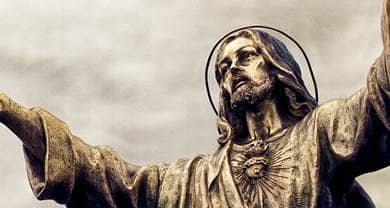- Trending:
- Pope Leo Xiv
- |
- Israel
- |
- Trump
- |
- Social Justice
- |
- Peace
- |
- Love

RELIGION LIBRARY
Lutheran
Suffering and the Problem of Evil
Like all monotheists (those who believe in one God), Lutherans confront a dilemma on the subject of evil and suffering. Does God want to relieve suffering, but is unable? In that case God is good but not all-powerful. Is God able to relieve suffering but unwilling or too unconcerned? Then God is all-powerful but not good.
Luther agreed with most of the Christian tradition that the universe was created from nothing by God. This belief emphasizes God's complete omnipotence. It also carries as a consequence the fact that anything wrong with the universe cannot be attributed to matter or the material of the universe, since this too is created by God.
The entrance point for evil and suffering in the world is the work of Satan, which results in human sin. But this simply pushes the problem back to square one. Could not God have created humans in such a way that they would not sin? One option for Christians has been to argue that God created humans with free will, so that there was a possibility that they would not sin. The buck for sin then stops squarely on the desk of humans. But Luther rejected this option. For him, power is a zero sum game. If humans had the power to decide to sin or not, then that is that much less power we attribute to God. Similarly, humans do not have the free will to choose to accept or reject salvation (this is in contrast to John Wesley and Thomas Aquinas). For Luther, the buck for sin and salvation ultimately stops with God.
Why would God set the universe up in such a way? Some Christians have argued that God sets it up this way because God's power and glory are more clearly shown in allowing and then saving from sin then if sin had never entered the world. (This is the tradition of O felix culpa! O happy sin!) Luther also rejected this argument.
The work of Satan is the cause of evil, and human sin is the most significant manifestation of this evil. Sin and evil, the causes of suffering, were finally for Luther a mystery. All the possible ways of explaining it or getting God off the hook for it (called in theology "theodicy," literally, "justifying God") are inappropriate speculation. Luther inherited from the medieval nominalists the belief that God is completely hidden from us. The only exception is what God has chosen to reveal in scripture. Scripture is not intended to satisfy our curiosity; it tells us only what we need to know to be saved. One thing it tells us (and this, according to Luther, is absolutely necessary to be saved) is that God's ways are not ours. We ought not wonder why God did not set things up differently, or try to make sense of the way things are set up. We are born into the middle of the set-up, and our only hope is to cling to the promise of salvation from sin, evil, and suffering through Christ found in the Bible.










